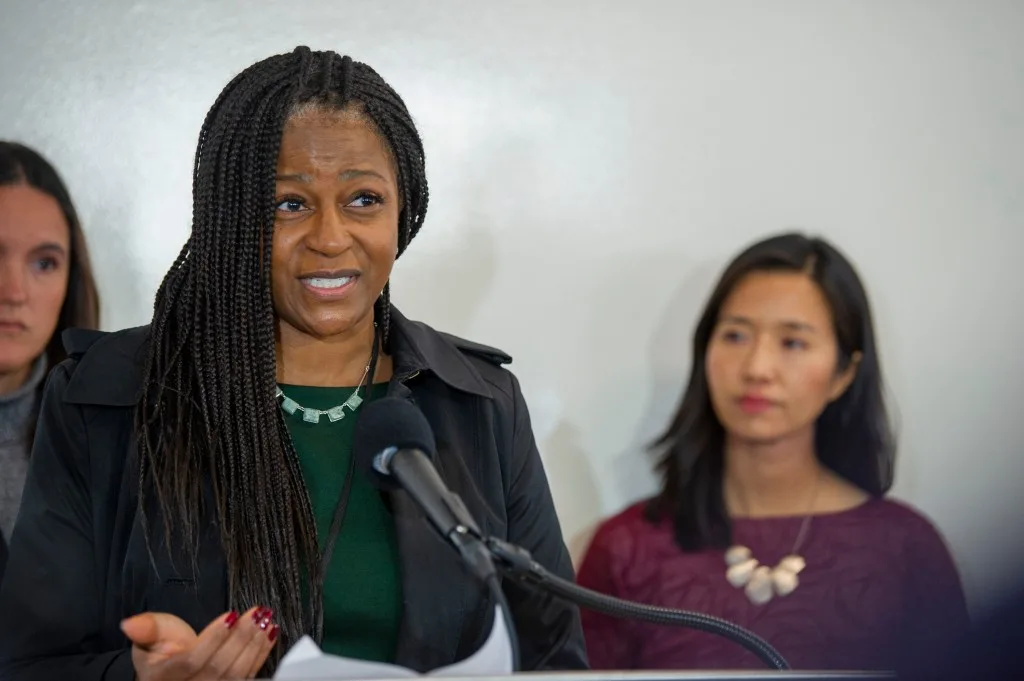
In Boston, Black infants die at a rate over twice the citywide average, a Boston Public Heath Commission report released Thursday found.
“The findings of our Maternal and Child Health of Boston Report are a call to action for our city,” said Dr. Bisola Ojikutu, Commissioner of Public Health and Executive Director of the Boston Public Health Commission. “These stark racial inequities in infant mortality and other birth outcomes cannot continue to exist.”
The study was conducted by the commission based on data from 2017 to 2021, reporting on rates of infant mortality, preterm births, low birthweight and birth counts by demographics like race and neighborhood.
The report found stark health disparities for Black infants.
Based on 2021, Black infants’ mortality rate reached 9.7 deaths per 1,000 live births — over doubling the citywide average, 4.6 deaths, and over tripling the rate for white infants, 3.2 deaths.
The percent of low birthweight births — defined as less than 5 pounds, 8 ounces — among Black infants, 13.4%, was more than twice the percentage for white infants, 6.2%, in 2021. Citywide the percent reached 8.4%.
The 2021 rate of preterm births for Black infants, 13.8%, also nearly doubled the rate for white infants, 7.1%.
“This growing body of evidence has really shed light on the role of racism on the findings that we’ve seen and that everybody has been talking about,” Ojikutu said during a embargoed briefing Wednesday.
“The way this is thought to work is that chronic stress caused by exposure to adverse circumstances and adverse environments promoted by racism throughout the span of a Black woman’s life contributes significantly to biologic changes that may affect a woman’s health and predict the health of her infants,” she continued.
The racial disparities remain significant evening for factors like income and geography, Ojikutu noted, calling for direct interventions to the true root factors.
The disparities reflect findings on maternal health in a Massachusetts Department of Public Health study released in July, which found Black women die during pregnancy or within one year postpartum at a rate 1.9 times higher than white women.
One surprising finding, Ojikutu said, was that Hyde Park had the highest rate of infant mortality of any Boston neighborhood, 7.8 deaths per 1,000 live births. Nearby, Roslindale had the lowest, 2.4 deaths per 1,000 live births.
“If you look at the demographic data, about 50% of High Park is self-identified as Black,” Ojikutu said, noting its more middle income and educated status. … “So if you compare that to other areas of the city, it certainly doesn’t have the lowest level of these indicators that might be predicting some of what we’re seeing. So we have to dig into this further.”
Mattapan and Dorchester, respectively, had the highest percent of low birthweight births and preterm births.
The commissioner noted that the city is expanding initiatives to address this crisis, highlighting the Boston Healthy Start initiative, Healthy Baby Healthy Child program and Boston Healthy Families Community-Based Perinatal Health Project, a developing project funded by a recent $4.7 million CDC grant aimed at increasing access to doula care.
Mayor Michelle Wu called the report findings “alarming.”
“As the nation’s healthcare hub, Boston has a responsibility to lead by tackling the social determinants of health that unjustly harm our residents and disproportionately impact BIPOC communities,” Wu said.

